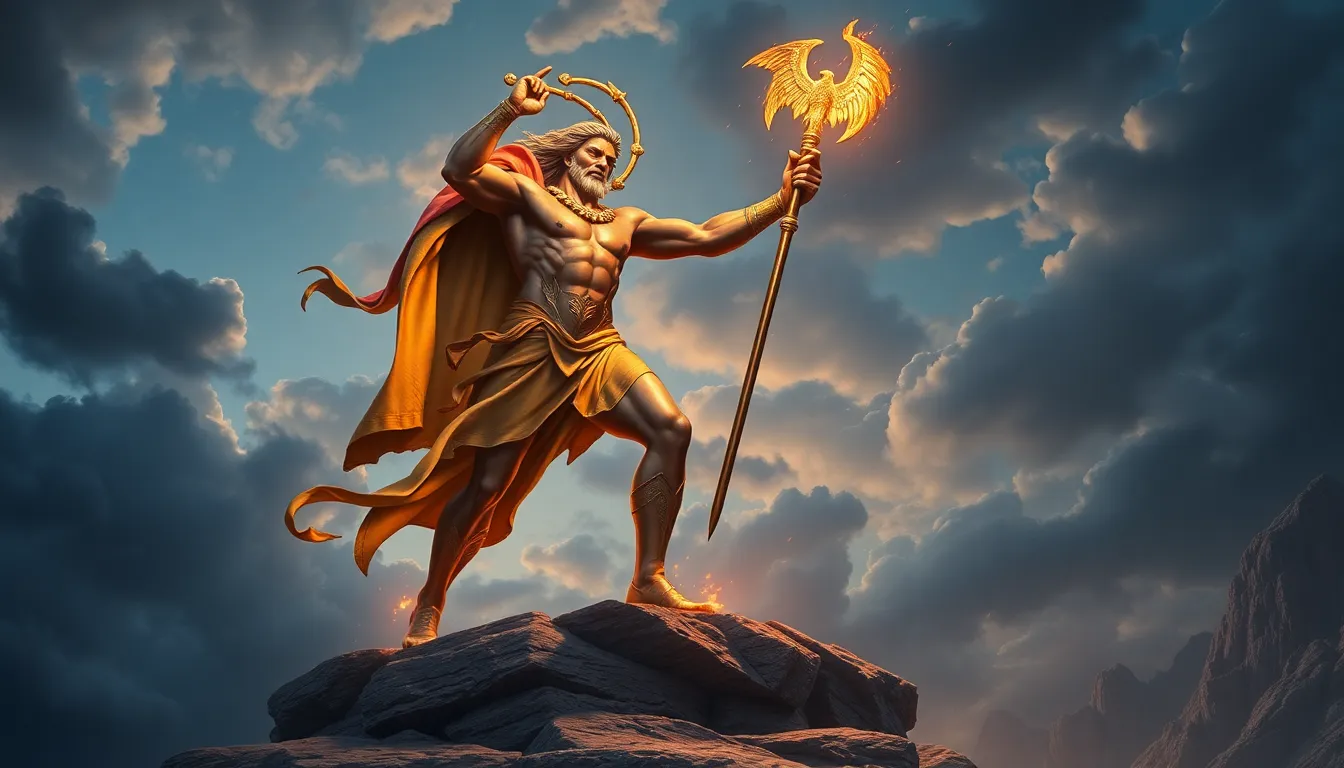Prometheus: The Titan Who Became Humanity’s Champion
Introduction to Prometheus
In the rich tapestry of Greek mythology, Prometheus stands out as a pivotal figure whose actions and consequences have resonated through the ages. Known as a Titan, he embodies a complex interplay between divine authority and humanity’s quest for knowledge and progress. His legacy is not merely one of rebellion against the gods but also of championing humanity, making him a symbol of enlightenment and defiance.
The Mythological Background of Prometheus
Prometheus is often depicted as the son of the Titan Iapetus and the Oceanid Clymene, positioning him within a significant lineage of deities. His brothers include Atlas, known for bearing the weight of the heavens, and Epimetheus, who is often portrayed as foolish in contrast to Prometheus’s wisdom.
Key myths associated with Prometheus highlight his intelligence and foresight. One of the most notable is the creation of humanity, in which Prometheus plays a crucial role. It is said that he molded humans from clay, breathing life into them, which establishes his connection to humanity from the very beginning.
The Gift of Fire: A Turning Point
The defining moment of Prometheus’s narrative is undoubtedly his audacious act of stealing fire from the gods, an act that symbolizes the spark of civilization. This theft was not merely an act of rebellion; it represented the gift of knowledge, creativity, and progress to humankind.
Fire, in this context, transcends its physical form. It symbolizes:
- Innovation and technology
- Warmth and comfort
- Transformation and enlightenment
However, Prometheus’s actions did not come without consequences. By defying Zeus, the king of the gods, he set into motion a series of events that would lead to his eternal punishment.
Prometheus as a Symbol of Defiance
Prometheus embodies the spirit of rebellion against divine authority. His decision to steal fire and give it to humanity reflects a profound commitment to the idea of progress and the betterment of human existence. This act portrays him as a champion of the oppressed and a visionary who dared to challenge the status quo.
His actions can be interpreted through themes of:
- Sacrifice for the greater good
- The pursuit of knowledge
- Individualism against oppressive forces
Prometheus’s unwavering spirit and resilience in the face of punishment further underscore his role as a symbol of defiance. His legacy inspires those who fight for justice and seek to challenge the norms set by more powerful entities.
The Punishment of Prometheus
The repercussions of Prometheus’s actions were severe. Zeus, enraged by the theft of fire, devised a cruel punishment: Prometheus was bound to a rock where an eagle would feast on his liver each day, only for it to regenerate overnight, ensuring his endless suffering.
This eternal punishment serves as a powerful reminder of the consequences that can follow acts of defiance. It raises questions about:
- The nature of justice and retribution
- The morality of divine authority
- The price of innovation and progress
Prometheus’s suffering invites interpretations that delve into the complexities of morality, where the lines between heroism and punishment blur.
Cultural Impact and Legacy of Prometheus
Throughout history, the story of Prometheus has left an indelible mark on literature and art. His tale has inspired countless works, from ancient tragedies to modern novels, and remains a powerful symbol of human resilience and the relentless pursuit of knowledge.
Prometheus has appeared in various forms, including:
- Plays by Aeschylus, particularly “Prometheus Bound”
- Literary works such as Mary Shelley’s “Frankenstein”
- Visual arts depicting his torment and defiance
In modern interpretations, Prometheus often represents enlightenment and the struggle for human rights, illustrating his enduring relevance across epochs.
Prometheus in Contemporary Context
In today’s society, the figure of Prometheus resonates deeply within discussions surrounding innovation and ethics. As humanity grapples with the implications of technological advancements, the questions raised by Prometheus’s story are more pertinent than ever.
Key considerations in the contemporary context include:
- The ethical implications of scientific discoveries
- The balance between progress and responsibility
- The ongoing struggle for freedom against oppressive systems
Prometheus’s lessons serve as a guiding light, reminding us of the importance of ethical considerations in our pursuit of knowledge and progress.
Conclusion: The Enduring Legacy of Prometheus
In conclusion, Prometheus’s journey from Titan to humanity’s champion encapsulates the duality of creation and consequence. His defiance against Zeus, the pain of his punishment, and his unwavering spirit have forged a legacy that continues to inspire and provoke thought.
As we reflect on Prometheus’s story, we are invited to consider our own relationship with knowledge, power, and morality. His enduring inspiration calls upon future generations to embrace the spirit of inquiry while remaining mindful of the responsibilities that come with it.




